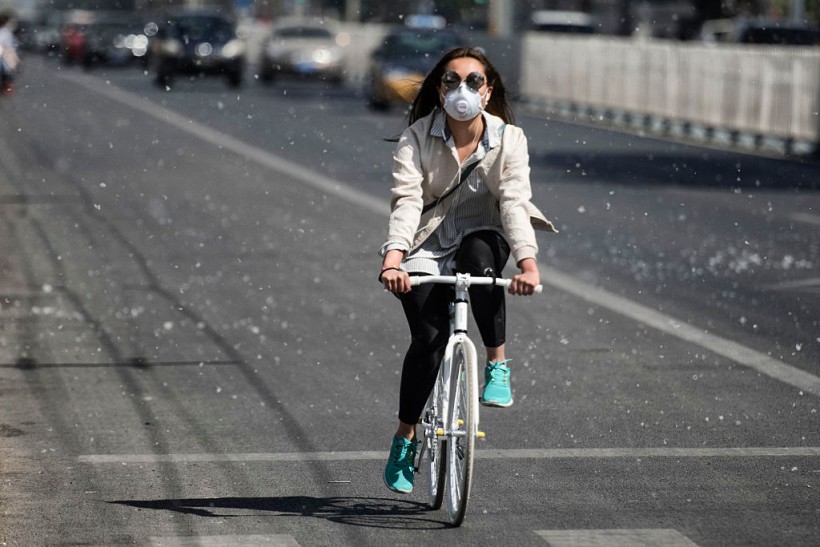The COVID-19 BA 2 and newer BA 2.12.1 coronavirus strains are pushing the number of cases up again throughout the United States, as well as in Ohio.
As specified in a WKYC Studios report, it's Spring, finally, in Northeast Ohio, and while everyone is enjoying the return of warmer temperatures, spring flowers, not to mention everything green, chances are the sniffing and sneezing have returned, too, particularly those who deal with the season of Spring allergy.
Is it allergies or COVID? How to tell the difference as allergy cases ramp up (@monicarobins reports) https://t.co/xXHzTjYQhA
— WKYC 3News (@wkyc) May 11, 2022
The good news is that, whereas the strains are highly infectious, for healthiest individuals, the worst is a "wicked head cold."
ALSO READ: Study Suggests Climate Change Makes Allergy Sufferers' Lives Worse

Different from COVID-19, seasonal allergies are not a result of a virus, instead, they are stimulated by an immune system response to allergens like tree or grass pollen.
COVID-19 Symptoms vs Seasonal Allergies
Different from COVID-19, seasonal allergies are not a result of a virus. They are stimulated by an immune system response to allergens like tree or grass pollen. However, there are some differences, therefore, a symptom check is recommended.
Both conditions can cause coughing and sneezing. However, allergies will give one such itchy, watery eyes. Allergies will never result in fever, vomiting, muscle aches, or diarrhea, while COVID-19 might.
While COVID-19 can cause one to experience shortness of breath or difficulty breathing, allergies don't typically cause such symptoms unless an individual has a respiratory condition like asthma that can be stimulated by exposure to pollen.
The scheme to treat seasonal allergies is getting ahead of them. This means that if one has not started over-the-counter or prescription antihistamines, decongestants, and nasal steroid sprays, this may be the right time to start. If unsure, health experts recommend talking to the doctor.
Avoiding Seasonal Allergies
Seasonal allergies, detailed in a Mayo Clinic report, may last for several weeks. Therefore, avoiding exposure is best, although it is frequently impossible.
If such allergies are making a person's life miserable, it is recommended that windows are kept closed, and air conditioning or fan are turned on to stay cool.
An individual prone to getting seasonal allergies should avoid going outdoors during windy and dry days. The ideal time for relief is following a good rain which is clearing pollen from the air.
Moreover, it is essential to pay attention to pollen count as well. There are weather reports released every day.
Preempting COVID-19 Infection
As for COVID-19, as the weather gets warmer, so does the season of parties. Some of these occasions include weddings and graduation.
For a party host, the best bet is to hold them outdoors if possible. It's known that the new COVID-19 strains are highly infectious.
Therefore, keeping the six-foot distance indoors, with a similar report on CNN, may not be enough, according to Dr. Daniel Culver, an infectious disease specialist at Cleveland Clinic.
Experts have advised, that if a person is coughing and sneezing, and he is unsure if he has been exposed to COVID-19 or if it is just seasonal allergies, he should get himself tested. This can be done either by the one performed at a health center, or via a home test.
It's a good idea to get tested daily before attending a party or event like a wedding for one, and then get tested again three days after.
Related information about the difference between COVID-19 and allergies is shown on PIX11's YouTube video below:
RELATED ARTICLE: Study Suggests Climate Change Makes Allergy Sufferers' Lives Worse
Check out more news and information on Pollen Allergies and COVID-19 in Science Times.














